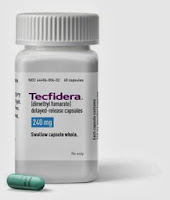 |
Director, Neurology Clinical Research
Professor, Department of Neurology
UNIVERSITY OF COLORADO
Co-Director,
Rocky Mountain MS Center at Anschutz
Medical Director,
ROCKY MOUNTAIN MS CENTER |
ECTRIMS Congress 2013: AMSTERDAM
-- A low-dose regimen of the leukemia drug alemtuzumab (Lemtrada)
slashed annualized relapse rates in patients with newly diagnosed
multiple sclerosis in a head-to-head trial against interferon-beta-1a
(Rebif), a researcher reported here.
Patients taking
alemtuzumab
-- first sold under the brand name Campath for treating B-cell chronic
lymphocytic leukemia -- had a mean annualized relapse rate of 0.18
during a two-year, phase III trial, compared with 0.39 for patients
receiving the standard regimen of interferon. But another neurologist
not involved with the study suggested that the drug's safety profile
remains a major concern.
Timothy
Vollmer, MD, of the University of Colorado in Denver, said the extreme
duration of alemtuzumab's effects was itself a potential problem.

"[It]
induces long-term if not permanent changes in immunoregulation; it also
induces significant generalized immune suppression and disturbance of
immunoregulatory circuits," he observed.
As a result, said
Vollmer, "once you treat a patient, you can't take it back. Those
patients are then at risk for infections and for development of
autoimmune disease."
He added that he considered these risks more
worrisome than the potential for progressive multifocal
leukoencephalopathy with natalizumab (Tysabri).
Coles
reported findings from the 581-patient trial, dubbed CARE-MS I, during a
late-breaking news session at the joint meeting of the European and
Americas Committees for Treatment and Research in Multiple Sclerosis.
Patients
in the study had disease duration of no more than five years and EDSS
disability scores of 3 or less, but had active disease on the basis of
relapses during the previous two years. Patients who had received
disease-modifying therapies previously were excluded.
The
difference in relapse rates meant the cancer drug met one of two primary
endpoints in the study, which was intended to demonstrate alemtuzumab's
superiority to one of the mainstays of first-line MS therapy.
















